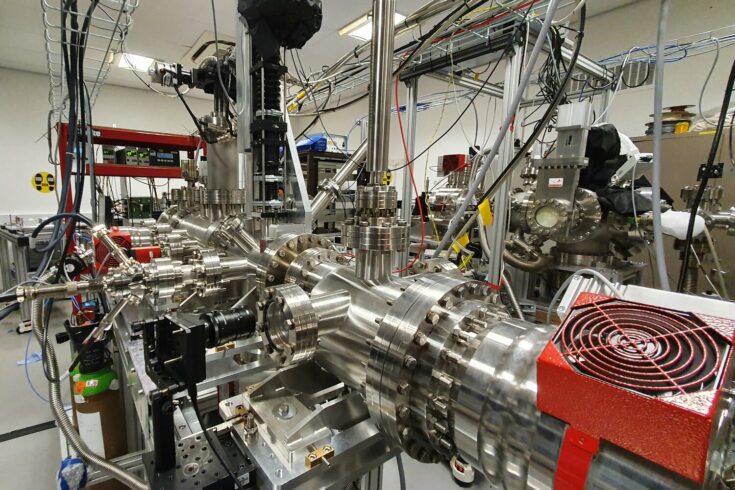Scientists, engineers and technicians from the UK have embarked on a £26 million project to help upgrade the Large Hadron Collider (LHC) at CERN, on the French/Swiss border near Geneva.
The collaboration is between:
- Science and Technology Facilities Council (STFC)
- CERN
- Cockcroft Institute
- John Adams Institute
- eight UK universities.
STFC is contributing £13.05 million.
Science Minister Amanda Solloway said:
Ever since it first switched on in 2008, CERN’s LHC has been working to answer some of the most fundamental questions of the universe.
I am delighted that the UK’s science and research industry will play a central role in upgrading what is the world’s largest and highest energy particle collider, enabling leading physicists to continue making monumental discoveries.
Cutting-edge research
CERN’s High Luminosity LHC project (HL-LHC), a large international collaboration, will deliver cutting-edge research and essential components over the next few years.
It will upgrade the LHC by increasing the number of particle collisions by a factor of 10.
This will allow enable scientists to look for new, very rare fundamental particles, and to measure known particles like the Higgs boson with unprecedented accuracy.
UK industry involvement
Phase two of the UK project, called HL-LHC-UK2, is focused on delivering essential hardware to the upgraded collider, with many parts expected to come from UK industry.
Essential hardware and project management will be provided by STFC’s Daresbury Laboratory in the Liverpool city region, in partnership with other project partners and UK industry.
Professor Mark Thomson, particle physicist and Executive Chair of STFC, said:
This is a significant undertaking, yet one with fantastic benefits for the UK. The aim is for this project to involve UK industry at every stage, with specialist companies being invited to bid for contracts to manufacture high-tech components.
Beyond visible matter
Visible matter (you, what you see around you, and all the stars and planets in space) makes up just 5% of our Universe.
The remaining 95% is thought to be dark matter (27%) and dark energy (68%) but physicists have not yet detected either.
It is hoped that the increased luminosity of HL-LHC will enable researchers to find clues that could solve the mystery of dark matter.
Eight UK universities
The universities involved in the consortium are:
- University of Dundee
- University of Huddersfield
- Lancaster University
- University of Liverpool
- The University of Manchester
- University of Oxford
- Royal Holloway, University of London (RHUL)
-
University of Southampton.
The lead partner in the collaboration is The University of Manchester.
STFC is responsible for the project management and Lancaster University provides the technical coordination of the project.
Further information
The UK project will deliver research and development of hardware and supporting simulations to the LHC upgrade in five areas:
- Beam dynamics – the dynamics of high intensity and high energy proton beams, using mathematics and computers (led by The University of Manchester, with RHUL, Huddersfield and Oxford universities).
- Crab cavities – the development and manufacture of cryomodules to house transverse deflecting cavities, known as crab cavities, which operate at minus 271°C. (STFC Daresbury Laboratory and Lancaster University).
- Beam diagnostics – the development of novel beam diagnostics to measure the beam properties. (RHUL, University of Liverpool and University of Oxford).
- Cold Powering – the delivery of sophisticated cold powering solutions, which allow for the transfer of electrical power from the earth’s surface and at room temperature to the LHC which is 100 meters below ground and working at below minus 269°C (University of Southampton).
- Laser engineered surface structures – in-situ laser treatment of the accelerator beam screens to prevent unwanted particles from being released into the machine which can severely impact on performance (University of Dundee).

